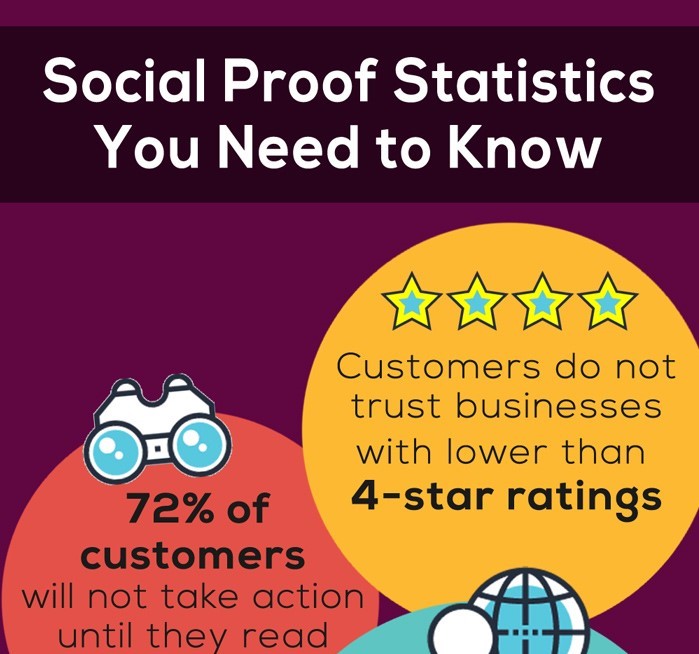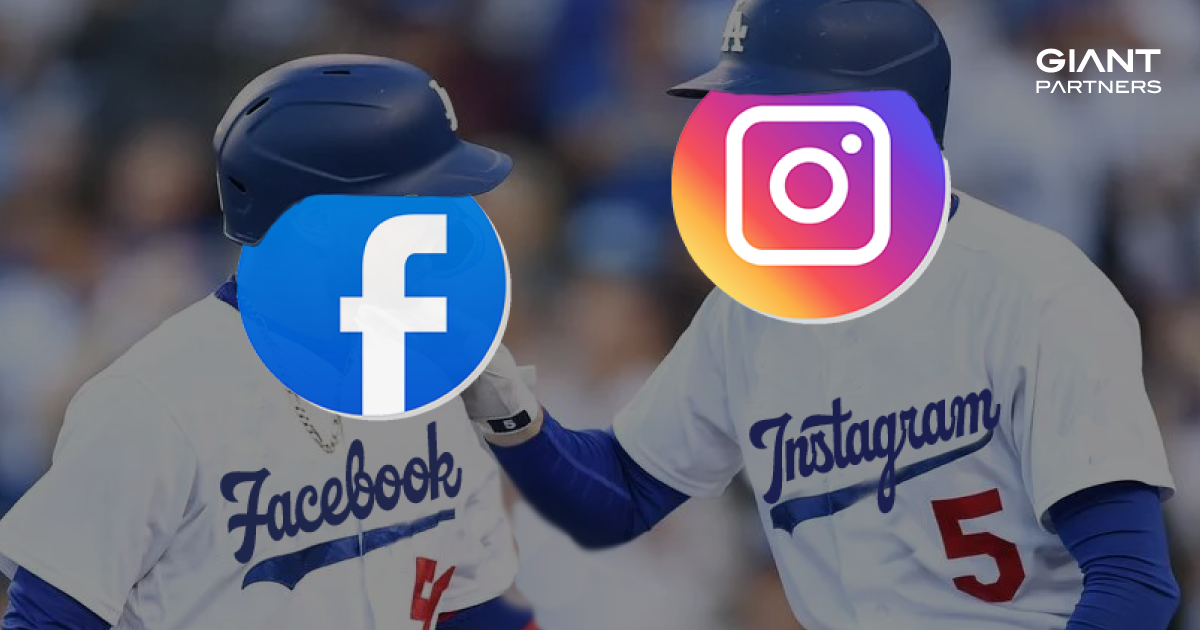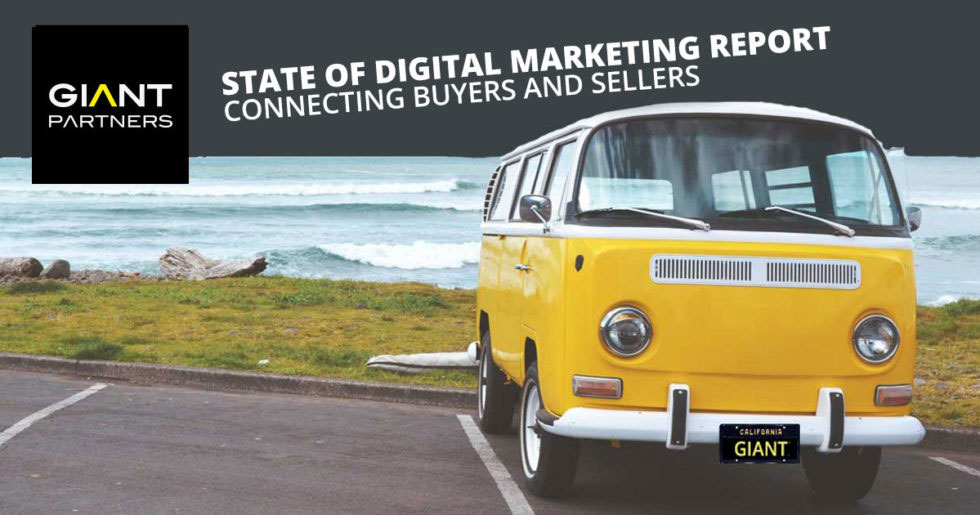I want to start off today’s post with this statement: SOCIAL PROOF IS EVERYTHING.
But what exactly is Social Proof? How does this affect your business?
In this article, we will be exploring what exactly this phrase means and how to generate, gather and showcase your Social Proof.
According to Space Between, Social Proof, also known as informational social influence, refers to people (potential customers) believing that the actions of others are correct, based on the frequency that they see said actions.
In other words, we resort to the opinions of others when we are uncertain about a product or when we have purchase objection and we want to assume “the correct decision.”
For example, I might buy a perfume that Chris Hemsworth posted on his Instagram.
Do I know how it smells? No.
But since it was endorsed by my favorite celebrity, I might just get it because, well… he’s Chris Hemsworth.
-
The Wisdom of the Crowd
For this one, the majority rule is very much applicable. This type of social proof is dependent on the large number of people that’s advocating your brand. You might not necessarily know these people, they might not be experts or somebody popular.
Ex: Hundreds, thousands, or even hundreds of thousands of people mentioning your brand or campaign on social media, like this very successful #ShareACoke campaign by Coca-Cola!

-
-
Consumers
Feedback from your former customers is powerful. This type of social proof is often found on social media and third-party review sites, where many people frequent to before making a purchase.
Ex: Positive reviews on websites like this one on Yelp!
-
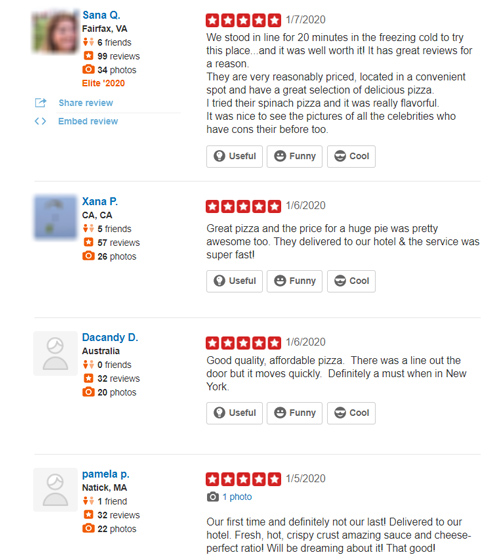
-
-
Celebrity
In today’s technology, everybody can be a star. Now, celebrities are not only identified as those who are in silver-screen — some are found on the internet (prominently on Youtube and Instagram) and the word “influencer” was born.
Ex: A random post of a celebrity about a product that they like.
-
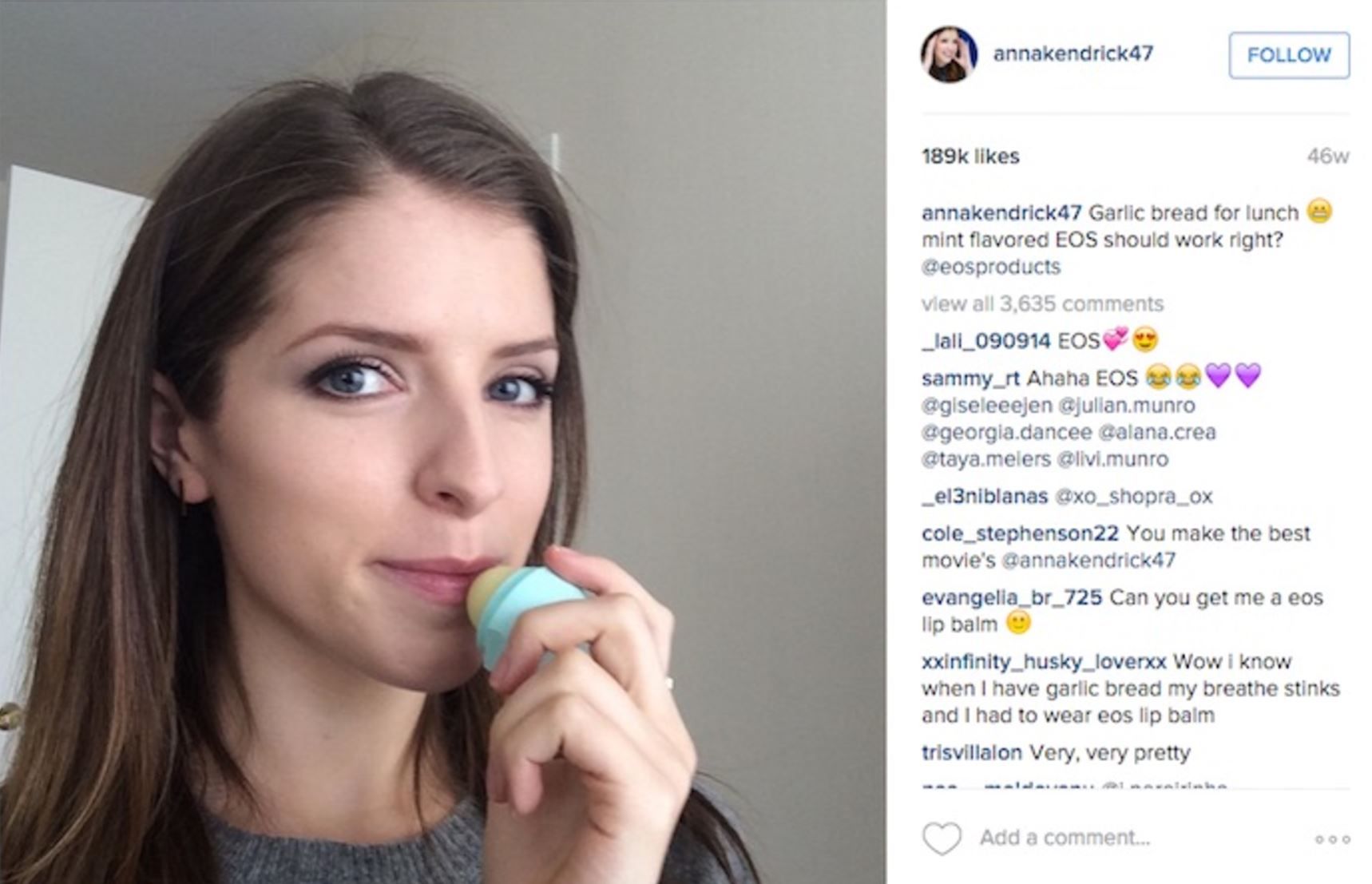
-
-
Expert
Getting expert social proof is very crucial. These are feedback from people who actually know a lot about your industry and are highly trusted. This is most important if you are in the B2B industry.
Ex: Your brand getting a shoutout from an expert in the field. And is there anybody better than the Bill Gates himself posting about your manufacturing company?
-

-
-
Certifications
These are affirmations from authoritative figures. Your business might be awarded as NY’s Best Local Restaurant by TripAdvisor, or your product is named as Best Tech Product by CNET — anything that shows how great your product or service is.
-
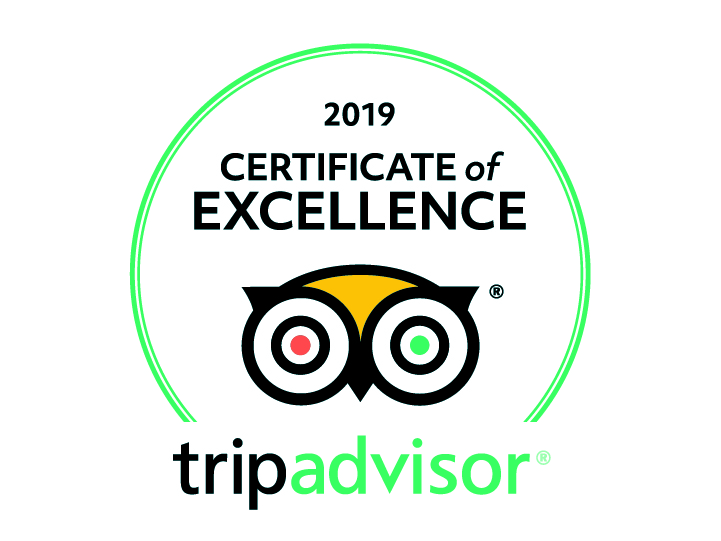
Imagine this, you need a new pair of running shoes because your old ones didn’t even last a year.
Now that you have a bad experience, will you still buy the same shoes? Of course, not!
But how would you know which one to buy?
This is where Social Proof comes in. You will start to search for “the best running shoes” and you’re more than likely to end up reading reviews, browsing on social media, looking at case studies about the different materials, or you might even start asking your friends for their recommendations!
Here are some staggering statistics that will surely convince you just how important Social Proof is:
88% of consumers trust online reviews as much as they trust personal recommendation.
Nearly 9 in 10 consumers have read online reviews to determine the quality of a local business.
94% say an online review has convinced them to avoid a business.
Customers don’t really trust businesses with lower than 4-star ratings. 80 percent of consumers say the star ratings they trust the most are 4.0, 4.5, and 5 stars.
72% of customers won’t take action until they read reviews.
90% of consumers read less than 10 reviews before forming an opinion about a business
Every star earned on review websites will result to about 5-9% increase in business revenue
54% of consumers use Facebook as a place to learn about brands and products.
Now that we know why Social Proof is the one of the most important parts of marketing, it is time to tackle some ways your business can increase leads with social proof.
Personal Videos
This is probably the most important Social Proof these days. Influencers and vloggers are posting reaction videos on social media or video platform sites. This is a great way to win the interest of other potential consumers.
Most likely, these viewers are already refined to suit your niche since they are watching or following someone with the same interest as them.
Getting these kinds of reviews are not as hard as you think – a few great video reviews from average customers can be nearly as valuable as a major influencer.
Just like this youtuber who simply showed what products she’s using for her everyday make-up look. Not sponsored by the brands, nothing fancy — but garnered a total of 5 million views and counting.
Now that we know why Social Proof is the one of the most important parts of marketing, it is time to tackle some ways your business can generate Social Proof.
Review Sites
Independent Review Websites
Monitoring your reviews on third party websites like Yelp and TripAdvisor is very important. Most consumers trust reviews on these websites because the company doesn’t have any control over their ratings.
Depending on your industry, this can be very important. A ranking of number one in a local Yelp review can literally generate every lead you need to reach every single one of your sales close.
As mentioned above, 72% of customers won’t take action until they read reviews.
That is 7 out of 10 people that you might potentially miss if your rating is low or non-existent.

So, how do you get these reviews? Well, the only way you’re ever going to get Yelp reviews and the like is if you tell people to write one.
You have to stay engaged with them even after making a purchase.
You can send emails or text messages manually after each successful purchase.
Or better yet, include an email asking for customers’ review on your post-purchase automation.
Independent Review Websites
Some might argue that a Google Review should be included in the independent review website section, and they are right.
But, I decided to create a separate section to emphasize its importance. Because Google Reviews is the most important out of all review sites and it is also the most disregarded one.
So, why is it so important?
Simply because, first impression lasts.
These are the reviews that show up underneath your business profile on the right, when somebody looks you up on Google.
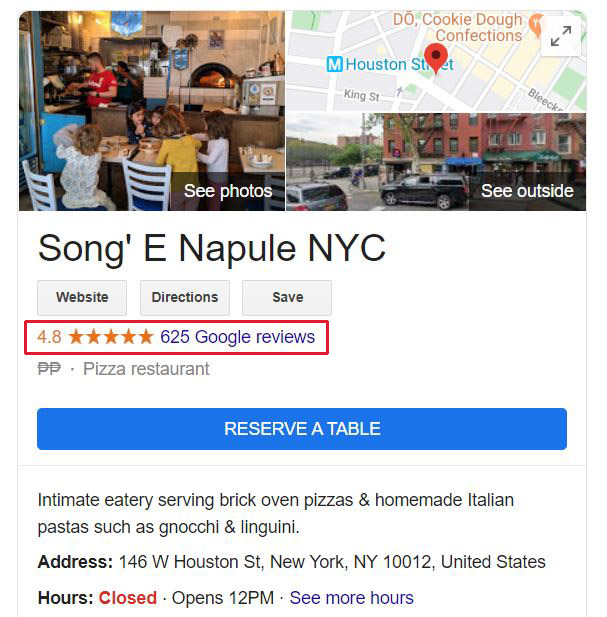
For some potential customers, this is the first thing they will see about business, and you want it to be very good.
You could have the best pictures, the best descriptions, the best deals — but if you have a couple of bad reviews right below your company info, it can absolutely spoil someone’s interest.
And these reviews actually help your business to rank higher on search results.
Reviews have astounding impact on your SEO, because Google actually takes these into consideration when ranking your business.
The higher your rating is, the more likely you’ll show up in both local searches and business searches.
Social Media
According to a research study, there are several reasons why social media affects users’ purchase decision:
The convenience of social media’s features, plus the comments and recommendations are the leading reason why consumers use social media to finalize a purchase.
In fact, Facebook reviews affects more than 50% of its user’s decision-making process.
It is also good to keep in mind that Facebook has 2.45 billion monthly users — so yes, having good social media presence should be included in your business objectives.
That being said, managing your business page’s contents, comments, and generally engaging with your audience will do the trick.
By simply responding to and following up, about a third of customers will willingly delete their negative reviews, and a fifth are more likely to become loyal customers.
FACEBOOK:
89% of marketers use Facebook in their brand marketing efforts. Why wouldn’t you?
7 out of 10 adults in the US use Facebook.
74% of Facebook users check it daily.
Facebook ads with images are 75-90% more effective.
59% said that the ad preference produced by Facebook reflects their real-life interests.
The best time to post on Facebook is weekdays between 10 a.m. and 3 p.m. Wednesday is the best day to post while Sundays show the least traffic.
Twitter:
Link clicks account for 92% of all user interaction with tweets.
There’s 500 million tweets sent out each day -- 6000 tweets every second.
83% of the people who sent a Tweet to a company have received a response. These people also felt better about the company and are more inclined to do business with them.
53% of users purchased a product that they first saw on Twitter.
26% of Twitter users earn about $75,000 or more annually.
instagram:
Instagram has 1 billion active monthly users and 50% uses it everyday.
Advertisers are shifting their dollars to Instagram Stories. Instagram is generating 23% higher ad revenue than Facebook.
Posts on Wednesday at 11am and Friday from 10-11am generally get better engagement than other times of the week.
89% of marketers deemed Instagram as the most important social media platform for influencer marketing.
Video brings 49% more interactions than image posts.
Case Studies
Case studies are an important component of an overall sales strategy. They should be thought of as a complimentary resource to company overview videos and sales decks. Case studies are most effectively used when they are proactively sent to customers who are being prospected as potential customers.
In simple terms, case studies should be used to get you in the door, not to close a deal.
What’s really interesting is most companies actually jump to making case studies before focusing on getting videos and reviews from consumers.
Case study is a powerful tool, especially if you are in the B2B industry. If you’re working on closing a deal with clients, you will notice that most pitches will end with your client asking for case studies.
More often than naught, when a lead asks for a case study, the quality of your product/service is in doubt and they are most likely blowing you off.
They are typically used as a closing tool. So, it’s really important that you have case studies that are specific to different industries that clearly showcase a problem and then how your product or service was the solution to that problem.
With Jeremy’s 15 years experience in sales management, “Send me case studies” means a closed door. Case studies should start a conversion. Your personal relationship and product/service itself should close the deal.
Put together a case study that your clients can relate to, easy to read, and make sure to include real numbers and outcomes. Most importantly, make it easy to find on your website.
CONCLUSION
These types of Social Proof are all fairly easy to produce. Unfortunately, many companies neglect doing this because it’s that little bit of extra work at the end of a campaign or sale close that you feel like you don’t have the energy or time to follow through.
However, if you give the time and effort into producing great and effective Social Proof, your product and services will literally sell itself.
You want to overcome that objection that’s in their mind with a third party testimonial.
But it is good to keep in mind that it all boils down to how good your customer support, products and/or services are.
Make sure to take care of your customers, and your customers will take care of you.

